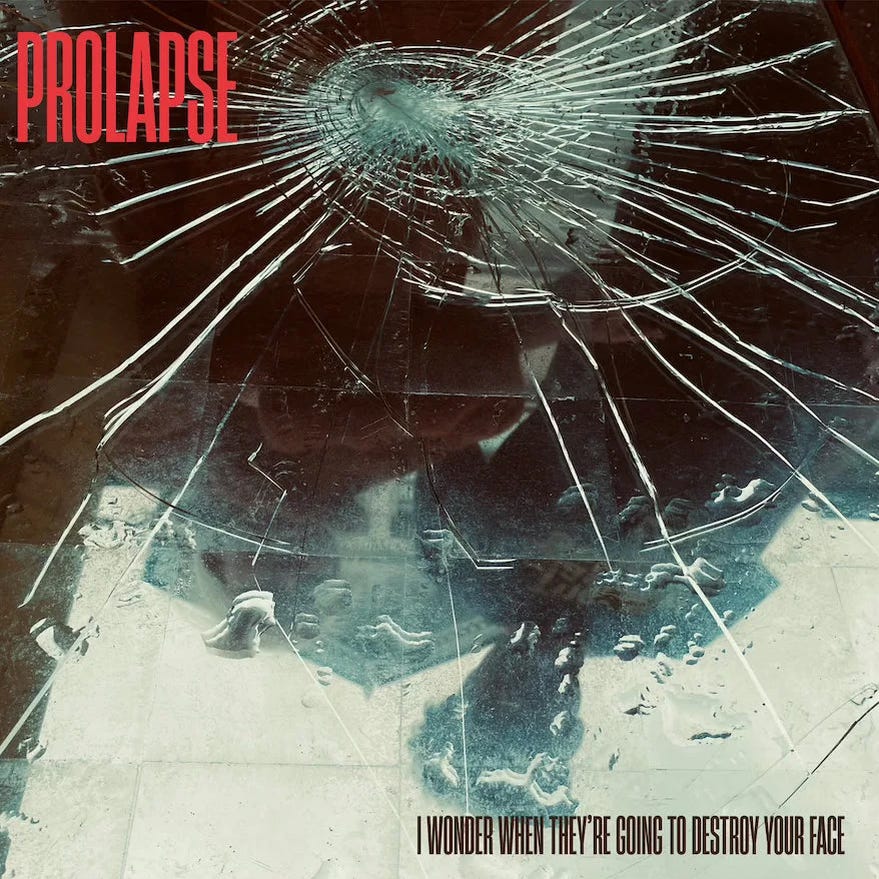Prolapse - I Wonder When They’re Going To Destroy Your Face
Album review - vote 7.2
In the ’90s, continuing the thread of the previous decade, Prolapse acted as a bridge between post-punk, shoegaze, noise rock, and post-rock. The Anglo-Scottish formation combined the angular edges of Gang of Four, the theatricality of Public Image Ltd, and the “unionist” grit of The Fall with the noisy swerves of My Bloody Valentine and Sonic Youth, forging a sound where repetitive, hypnotic grooves, circular structures, and motorik rhythms converged.
Their debut Pointless Walks to Dismal Places (1994) already showcased the band’s ability to unite post-punk nerviness with sonic experimentation. With backsaturday (1995) and The Italian Flag (1997), the group expanded its structures, weaving in more melodic atmospheres and complex soundscapes, while Ghosts of Dead Aeroplanes (1999) closed their first cycle with a more structured, atmospheric approach. Then silence: twenty years of hiatus, briefly interrupted by an EP in 2019 and now by a comeback album steeped in vindication, I Wonder When They’re Going To Destroy Your Face?
The opener Fall of Cashline is already a manifesto: a riff repeated until it becomes a sonic barricade, with Mick Derrick declaiming, drunken and graceless, somewhere between John Lydon and Mark E. Smith, while Linda Steelyard counters him like a psychoanalyst from hell. Chaos and hypnosis, Wire-esque wall of sound at the end, a Red Krayola-like sassiness — discomfort is Prolapse’s natural element, and they revel in it (Jackdaw being equally emblematic). Yet it’s in tracks like Cha Cha Cha 2000 that their sordid side and Louisville connections emerge. From here, spoken-word elements (Err on the Side of Dead) perfectly align with current post-punk tendencies, and are just as effectively deployed in psychedelic drifts like Ghost in the Chair.
Prolapse still sound as if they’re about to collapse at any moment, and yet they persist, stubbornly. A deep knowledge of noise and its mutations — with Barrett-esque nods in Cacophany No C — meets creative freedom and seasoned experience, in an album that rethreads the line of rock that, from the Velvet Underground onwards, has never stopped pulsing and surviving.



